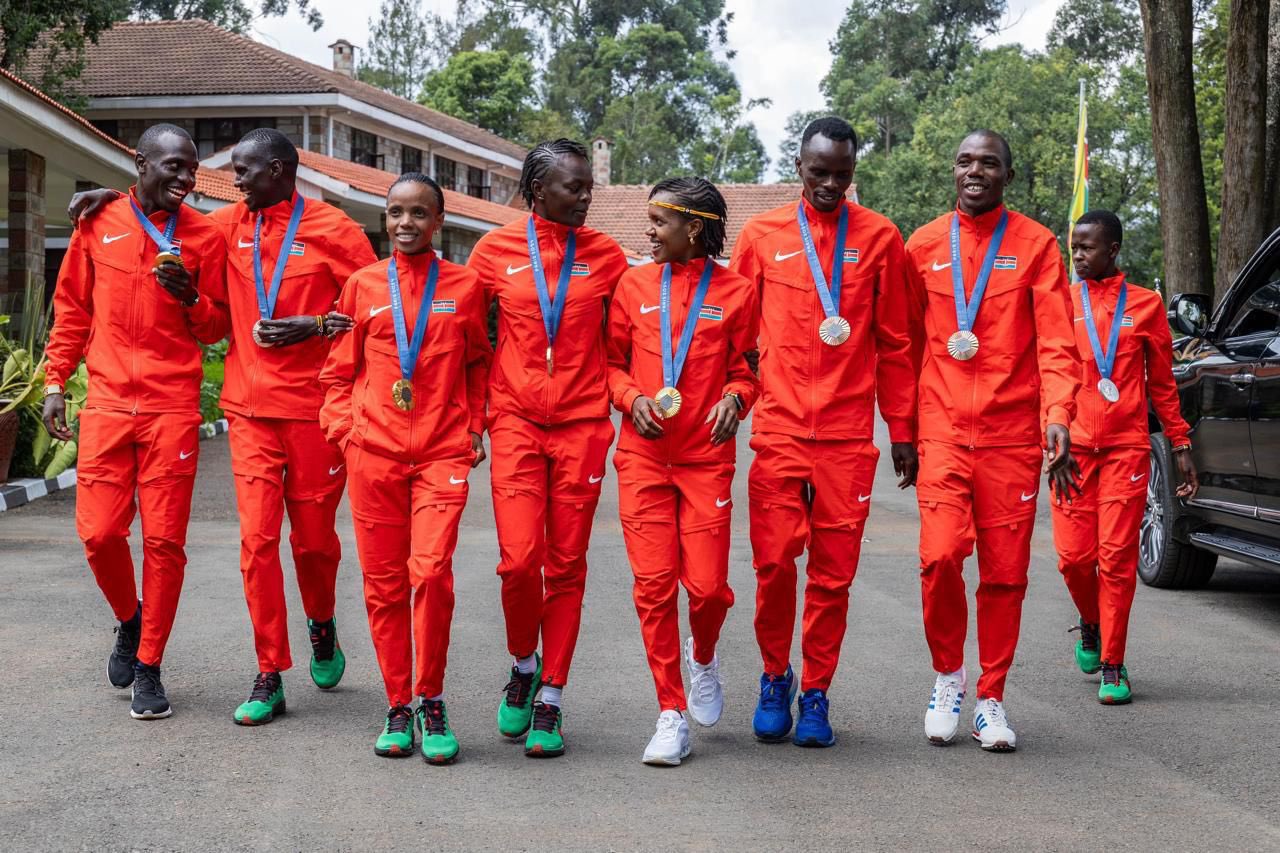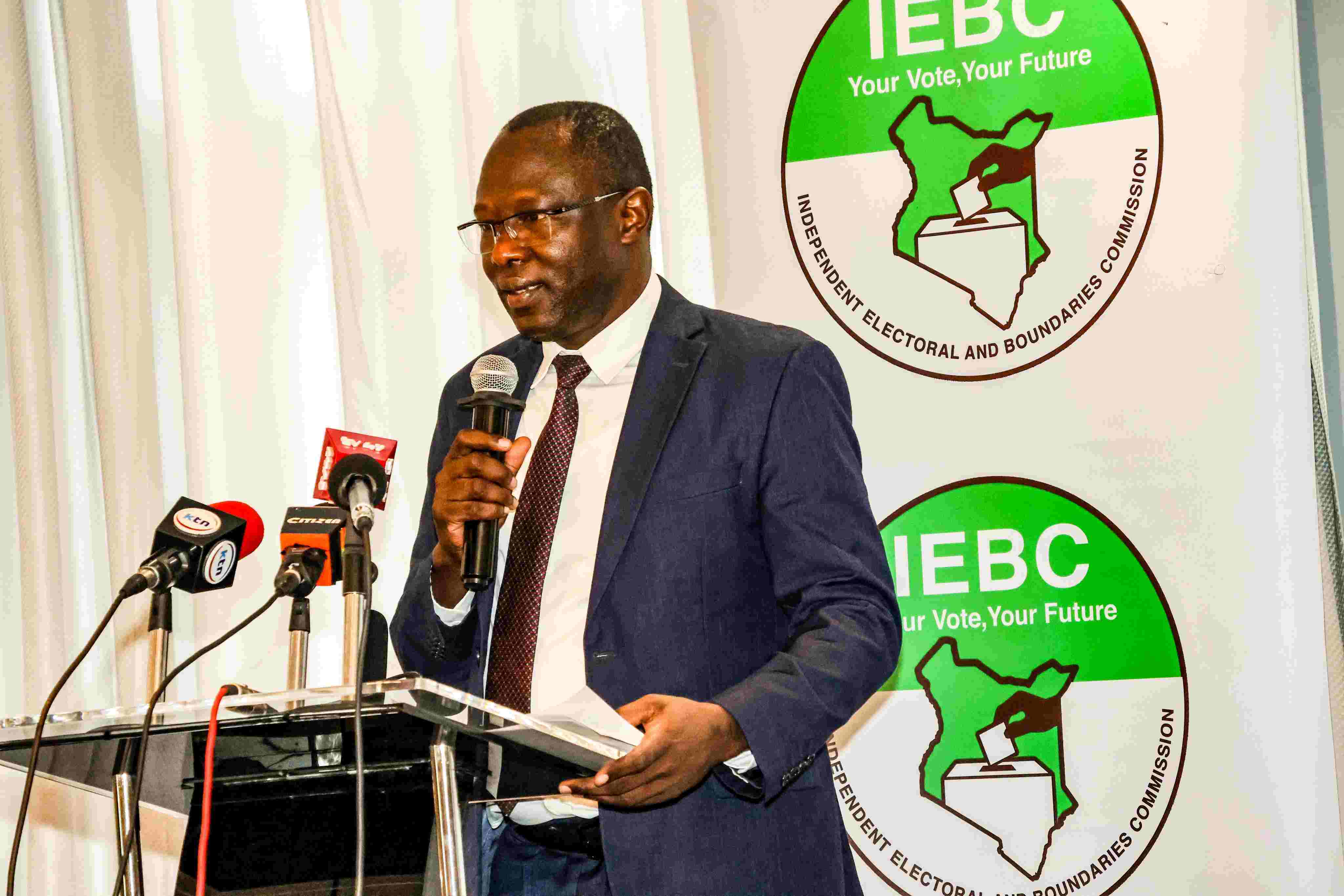Kenya's Paris Olympics performance highlights need for sporting diversification

Kenya's impressive haul of 11 medals at the 2024 Paris Olympic Games highlights both its enduring strength in athletics and the pressing need to diversify into other sports. Despite ranking 17th globally and topping Africa's medal table, the country's reliance on athletics remains evident, with challenges in expanding its Olympic success into other disciplines.
The 2024 Paris Olympic Games ended with Kenya winning four gold medals, two silver medals, and five bronze medals, a haul that saw the country ranked 17th worldwide and first in Africa.
More To Read
- NOCK warns Kenyans against buying counterfeit Team Kenya merchandise
- Kenya’s top athletes eye glory, millions in New York City Marathon
- Faith Kipyegon’s 1500m world record in Eugene officially ratified
- Athletics Kenya names strong 58-member squad for 2025 Tokyo World Championships
- Eliud Kipchoge to skip 2025 World Athletics Championships, backs younger runners
- Kenyan junior stars fired up for African athletics showpiece in Nigeria
These 11 medals were won by nine different athletes, with Beatrice Chebet (gold medals in the women’s 10,000 metres and women’s 5,000 metres) and Faith Kipyegon (silver medal in the women’s 5,000 metres and gold in the women’s 1,500 metres) each returning home with two medals. This achievement placed them alongside Kipchoge Keino (1968 and 1972), Naftali Temu (1968), Julius Sang (1972), and Vivian Cheruiyot (2016) as the only Kenyans to win two medals in a single edition of the Olympic Games.
Kenya’s other medalists were Emmanuel Wanyonyi (gold, men’s 800 metres), Ronald Kwemoi (silver, men’s 5,000 metres), Abraham Kibiwot (bronze, men’s 3,000 metres steeplechase), Benson Kipruto (bronze, men’s marathon), Faith Cherotich (bronze, women’s 3,000 metres steeplechase), Hellen Obiri (bronze, women’s marathon), and Mary Moraa (gold, women’s 800 metres).
Kenya’s performance at the 33rd Olympiad once again demonstrated an overreliance on athletics in the nation’s quest for Olympic glory, as the country failed to compete for medals in the five other sports it was represented in – fencing, judo, rugby sevens, swimming, and volleyball. Kenya’s representatives in these sports did not progress beyond the first round of their events, clearly indicating that the country has a significant gap to close before becoming dominant in other sports as it is in athletics.
“I have to give credit to all the athletes, coaches, the National Olympic Committee of Kenya, and everyone else who was involved in Team Kenya for the Paris Olympics. They have done a good job,” said Youth Affairs, Creative Economy, and Sports Cabinet Secretary Kipchumba Murkomen, speaking on the sidelines of the Paris Olympics,
“I would also like to say that we need to diversify our portfolio. Gone are the days of depending on one sport. If you look at the top-performing nations at the Olympics, they take part in very many different sports. I think we have the capacity too. I have a huge responsibility now as the new Cabinet Secretary in charge of the sports docket, but this is an area I am willing to explore and ensure we nurture talents in different fields.” He added.
And yet someone would think 81 are many. We need to fix our sport, we need to diversify. As a sporting nation we should be sending athletes in almost all sporting disciplines Kenya has.
— Katami Michelle (@MichKatami) July 26, 2024
Overall, Kenya has won 124 medals (39 gold, 44 silver, and 41 bronze) at the Olympic Games, making it Africa’s most successful nation in the competition. Of these 124 medals, only seven have come from sports other than athletics.
After athletics, boxing is Kenya’s most successful sport at the Olympic Games, with seven medals (one gold, one silver, and five bronze). However, since the 1988 Seoul Olympic Games, when the late Robert Wangila (gold medal, men’s welterweight) and Chris Sande (bronze, men’s middleweight) returned home with medals from their respective events, no Kenyan pugilist has succeeded in emulating them.
Even as Kenya continues to perform well in athletics, particularly in middle and long-distance races, there have been worrying signs in recent years that the country’s dominance in these events is waning. This slow and steady decline has also been exacerbated by Kenyan athletes switching allegiances to other countries and performing exceptionally well, as evidenced by Winfred Yavi’s gold medal for Bahrain in the women’s 3,000 metres steeplechase.
Other countries are catching up with Kenya at an alarming rate, particularly in the men’s events, as demonstrated by the erosion of Kenya’s dominance in the men’s 3,000 metres steeplechase and its gold medal drought in the men’s 5,000 metres and 10,000 metres races. Kenya continues to dominate only the men’s 800 metres, winning a fifth consecutive gold medal in this event. However, the men’s 1,500 metres remains a concern, with a gold medal drought now in its 16th year.
Such concerns are less prevalent in women’s events, where Mary Moraa (800 metres), Faith Kipyegon (1,500 metres and 5,000 metres), and Beatrice Chebet (5,000 metres and 10,000 metres) are leading athletes in their respective events. The only event where Kenyan women are struggling is the 3,000 metres steeplechase, now dominated by Bahrain and Uganda, thanks to Winfred Yavi and Peruth Chemutai, respectively.
Kenya lost both Olympic titles in the men’s and women’s marathons at the 2024 Paris Olympic Games, but the country’s deep talent pool in this discipline offers great hope for a comeback in future events.
Kenya’s attempt to diversify in athletics by fielding competitors in sprint races and field events (javelin) is at varying stages of growth and development. The emergence of sprinters like Ferdinand Omanyala (100 metres) and Wiseman Were (400 metres hurdles) is currently seen as the country testing the waters, as no significant headway towards dominance in these domains has been made yet.
In field events, although Julius Yego is still capable of performing at the highest level, his advancing age, coupled with a lack of upcoming talent, means that Kenya may not feature in field events in a few years. No athlete in the country has seriously ventured into the discus, hammer, or shot put throws.
Given the trends in athletics that threaten Kenya’s dominance, it is high time the country focuses on ensuring it achieves an admirable level of success in other sports.
It is time for the country to promote the growth and development of other sports, particularly those considered unconventional for this part of the world. Besides venturing into more field events, Kenya should also consider promoting sports such as gymnastics, judo, weightlifting, and wrestling, as well as reviving sports in which the country previously excelled, such as boxing and hockey.
With our abundance of freshwater lakes and long coastline, water sports like rowing can be introduced to locals living around lakes and along the coast.
This diversification of Kenya’s sporting interests should be seen as a long-term project, as it would be rash to believe that the country will start winning medals in these new areas of focus at the next Olympic Games. The Ministry of Sports and corresponding federations should devise a long-term strategy to see most Olympic sports thriving in the country within the next 10 to 20 years, with a commendable level of supremacy.
Top Stories Today











































